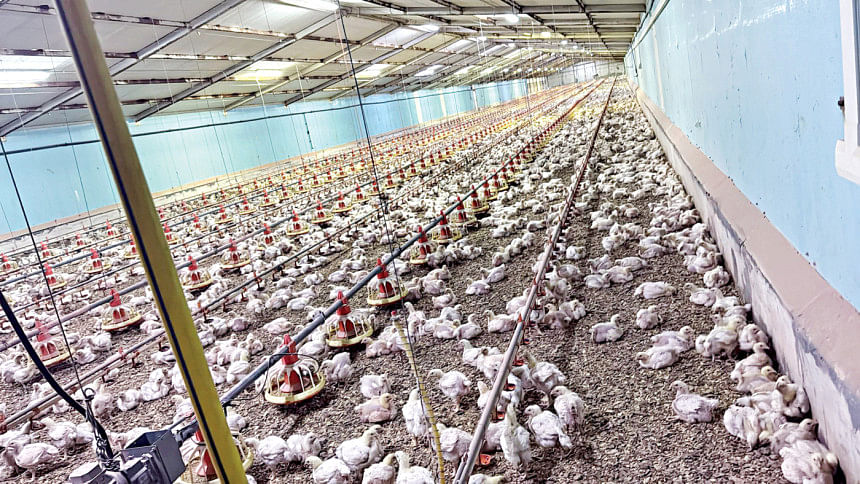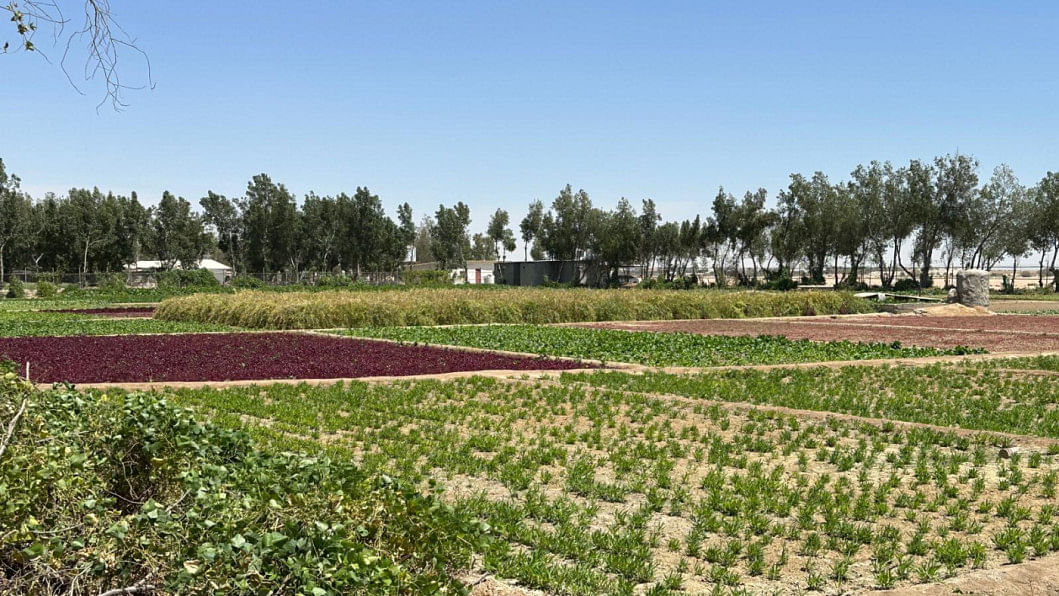On the sun-scorched Arabian Peninsula lies Qatar—a nation of just over 11,500 square kilometres, where extreme temperatures, rocky terrain, and meagre annual rainfall make agriculture an improbable endeavour. For decades, this desert country relied almost entirely on imports to feed its population. But a sudden geopolitical crisis in 2017 forced Qatar to rethink its food systems—and in that recalibration, thousands of Bangladeshi workers and entrepreneurs found an unlikely but crucial role.
On 5 June 2017, when Saudi Arabia, the UAE, Bahrain, and Egypt severed diplomatic ties and imposed a land, air, and sea embargo on Qatar, food shelves emptied and panic swept across the country. Although Qatar quickly secured temporary alternatives through Turkey and Iran, the crisis exposed the perils of relying heavily on imports.
In response to the embargo, the Qatar National Food Security Strategy (QNFSS) 2018–2023 was launched with ambitious targets: 70% self-sufficiency in vegetable production and complete self-sufficiency in milk and poultry by 2023.
By 2023, Qatar met its milk and poultry targets and raised vegetable self-sufficiency to 46%, thanks largely to its 1,100 farms run mostly by migrant labour. Bangladeshi workers have been key to this shift—not only as labourers but also as entrepreneurs leasing land and applying a mix of traditional farming and modern technology. Their presence is especially strong in areas like Al Rayyan, Al Khor, and Al Shamal.
Their farms produce everything from aubergines and gourds to carrots, okra, bitter gourd and snake beans. Herbs like mint, parsley and coriander are cultivated for local markets, while some ventures focus on ornamental flowers. Recently, Bangladeshi entrepreneurs have also expanded into livestock, poultry, honey production, and even experimental fish farming.

Despite these vital contributions, many Bangladeshi workers face harsh conditions. Most entered Qatar on domestic worker visas, only to be transferred to farms where they toil in extreme heat, often seven days a week, without proper wages, overtime pay, or holidays. Many are confined to their farms, allowed to leave only in emergencies. Minimum salaries hover around 1,000 Qatari Riyals, and in some cases, food and housing allowances are non-existent.
While a few modern farms do offer better conditions—overtime pay, communal meals, or food stipends—these remain exceptions. Yet the labourers continue, driven by the promise of opportunity, even as they battle systemic exploitation.
The transition from domestic service to agricultural labour has created an informal, yet vital, labour stream. Many workers say they are overqualified for farm work but had no choice after struggling to obtain or renew visas. This mismatch between skillsets and labour use not only reduces productivity but also traps workers in exploitative cycles.
Still, their perseverance is laying the foundation for something more enduring: a legacy of agricultural knowledge transfer. As these migrants master Qatar's farming innovations—hydroponics, aquaponics, and dry-climate techniques—they gain skills that could also prove invaluable back home, particularly as Bangladesh faces increasing climate volatility.
Qatar's newly launched QNFSS 2030 sets even bolder goals: 55% self-sufficiency in vegetable production, 100% in dairy and poultry, and significant increases in red meat and fish production. Meeting these targets will require not just land and technology—but people.

This opens the door to a more structured and humane partnership between Qatar and Bangladesh. Research suggests Bangladeshi workers are a valuable asset in Qatar's food security efforts. Their role could be further strengthened through a government-to-government (G2G) agreement ensuring fair wages, benefits, and the migration of pre-trained agricultural workers and field technicians. Such an arrangement would boost Qatar's agricultural productivity while reducing exploitation and improving worker morale. It would also create a sustainable model of cooperation, allowing both nations to benefit—Qatar through food security, and Bangladesh through skill-building and economic advancement for its migrant workforce.
Moreover, the knowledge and skills acquired in Qatar would enable returning Bangladeshi workers and entrepreneurs to contribute meaningfully to agricultural development at home. Their exposure to specialist practices such as hydroponics, aquaponics, and other arid-climate farming methods—vital under the looming threats of climate change—would position them as key agents in advancing climate-resilient agriculture in Bangladesh.
Md. Mahdi Hasan is the Counselor at the Bangladesh Embassy in Doha, Qatar.


Comments